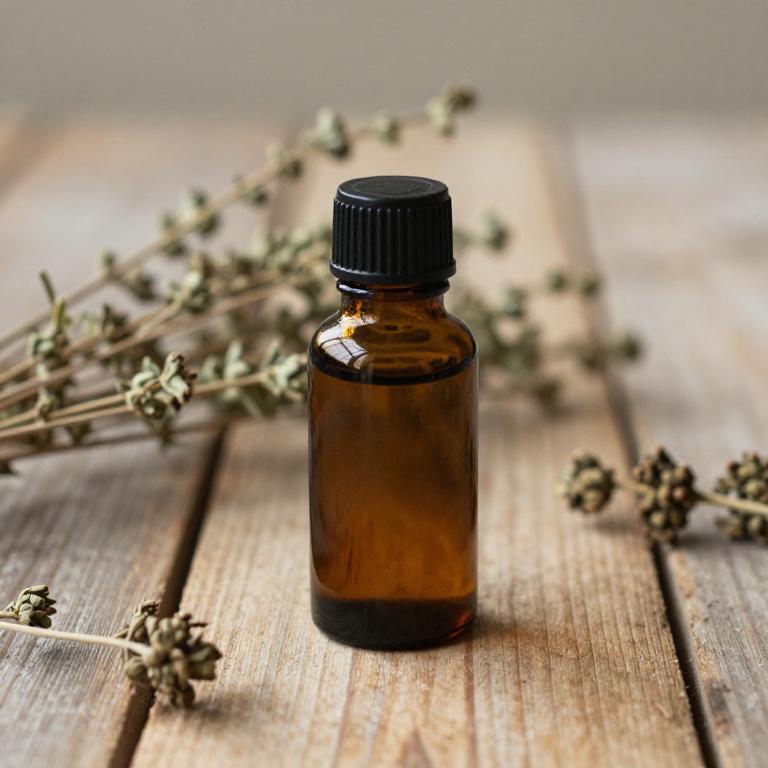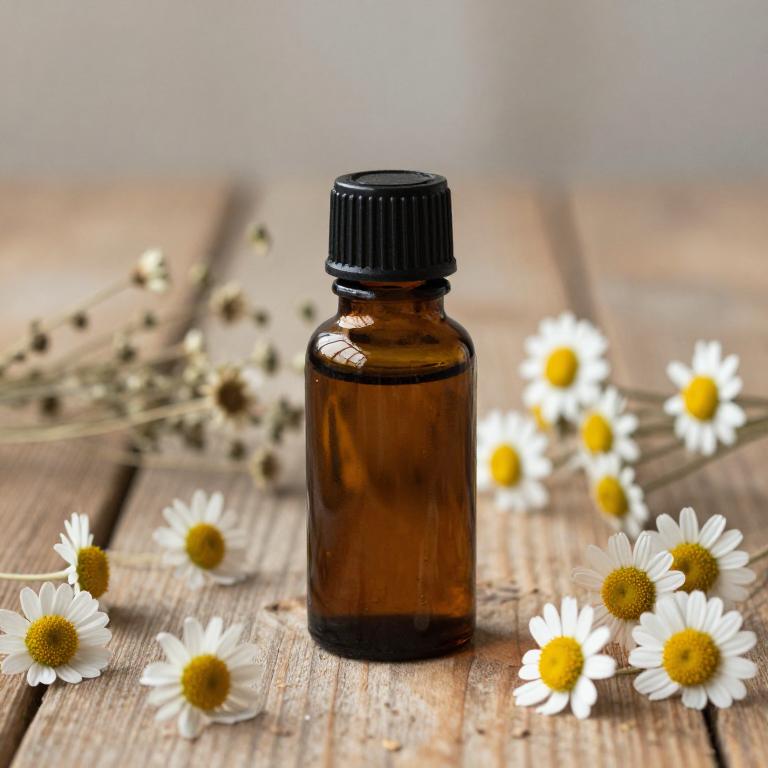10 Best Herbal Essential Oils For Ear Infection

Herbal essential oils, such as eucalyptus, lavender, and tea tree oil, are often used as natural remedies for ear infections due to their antimicrobial and anti-inflammatory properties.
These oils can help reduce inflammation and combat bacterial or fungal growth in the ear canal when properly diluted and applied. However, it is important to consult a healthcare professional before using essential oils, especially in children or individuals with sensitive skin. Some oils may cause irritation if not used correctly, so they should always be diluted with a carrier oil before application.
While they may offer some relief, essential oils should not replace conventional medical treatments for persistent or severe ear infections.
Table of Contents
- 1. Eucalyptus (Eucalyptus globulus)
- 2. Melaleuca (Melaleuca alternifolia)
- 3. Ceylon cinnamon (Cinnamomum zeylanicum)
- 4. English lavender (Lavandula angustifolia)
- 5. Thyme (Thymus vulgaris)
- 6. Rosemary (Rosmarinus officinalis)
- 7. Salvia (Salvia officinalis)
- 8. Oregano (Origanum vulgare)
- 9. German chamomile (Chamomilla recutita)
- 10. Germander (Teucrium chamaedrys)
1. Eucalyptus (Eucalyptus globulus)

Eucalyptus globulus, commonly known as blue gum eucalyptus, is a widely used plant in aromatherapy and natural medicine, particularly for its essential oil, which is renowned for its antimicrobial and anti-inflammatory properties.
The essential oil of Eucalyptus globulus contains compounds such as eucalyptol, which have been shown to exhibit efficacy against various bacteria and fungi, making it a potential natural remedy for ear infections. When used appropriately, such as in steam inhalation or diluted topical applications, it may help reduce inflammation and relieve symptoms associated with ear infections. However, it is important to consult a healthcare professional before using eucalyptus oil, especially for children or individuals with sensitive skin.
While it may offer supportive benefits, it should not replace conventional medical treatments for ear infections.
2. Melaleuca (Melaleuca alternifolia)

Melaleuca alternifolia, commonly known as tea tree oil, is a popular essential oil derived from the leaves of the Melaleuca alternifolia plant, native to Australia.
It is widely recognized for its antimicrobial, antifungal, and anti-inflammatory properties, making it a valuable natural remedy for various health conditions, including ear infections. When used appropriately, tea tree oil can help reduce bacterial and fungal growth in the ear canal, alleviating symptoms such as pain, itching, and discharge. However, it is important to dilute the oil with a carrier oil before applying it to the ear to avoid irritation or damage to the sensitive ear tissue.
Due to its potent nature, it is recommended to consult a healthcare professional before using tea tree oil for ear infections, especially in children or individuals with known allergies.
3. Ceylon cinnamon (Cinnamomum zeylanicum)

Cinnamomum zeylanicum, commonly known as cinnamon, produces an essential oil that has been traditionally used for its antimicrobial and anti-inflammatory properties.
This essential oil contains compounds like cinnamaldehyde and eugenol, which exhibit potent antibacterial and antifungal effects, making it a promising natural remedy for ear infections. When used appropriately, cinnamon essential oil can help reduce inflammation and combat the pathogens responsible for otitis media. However, it should be diluted with a carrier oil before applying near the ears to avoid irritation.
While it may offer supportive benefits, it is not a substitute for medical treatment, and consultation with a healthcare professional is recommended.
4. English lavender (Lavandula angustifolia)

Lavandula angustifolia, commonly known as English lavender, is widely used in aromatherapy and natural medicine for its calming and anti-inflammatory properties.
Its essential oil contains compounds such as linalool and lavandic acid, which have demonstrated antimicrobial and antiseptic effects, making it a potential natural remedy for ear infections. When diluted properly, lavender essential oil can be applied topically to the outer ear to help reduce inflammation and discomfort associated with outer ear infections, such as swimmer's ear. However, it should not be used directly in the ear canal or for middle ear infections without consulting a healthcare professional.
While some studies suggest its effectiveness, more clinical research is needed to fully confirm its role in treating ear infections.
5. Thyme (Thymus vulgaris)

Thymus vulgaris, commonly known as thyme, is a herb widely used in aromatherapy and traditional medicine for its potent antiseptic and anti-inflammatory properties.
Its essential oil, derived from the leaves and flowers of the plant, contains compounds like thymol and carvacrol, which are known to exhibit strong antimicrobial activity. When used in diffusers or applied topically with a carrier oil, thyme essential oil may help reduce symptoms of ear infections by combating bacterial or fungal pathogens. However, it is important to consult a healthcare professional before using thyme oil, especially for children or individuals with sensitive skin.
While it can be a complementary therapy, it should not replace conventional medical treatments for ear infections.
6. Rosemary (Rosmarinus officinalis)

Rosmarinus officinalis, commonly known as rosemary, produces an essential oil that has been traditionally used for its antimicrobial and anti-inflammatory properties.
This essential oil contains compounds such as camphor, cineole, and pinene, which may help in reducing the symptoms of ear infections by combating bacterial and fungal pathogens. When diluted properly, rosemary essential oil can be applied topically to the outer ear to provide relief from inflammation and discomfort. However, it is important to avoid direct contact with the eardrum and to consult a healthcare professional before using it for ear infections.
While some studies suggest its potential benefits, more research is needed to fully understand its efficacy in treating ear infections.
7. Salvia (Salvia officinalis)

Salvia officinalis, commonly known as sage, is a medicinal herb that has been traditionally used for its antimicrobial and anti-inflammatory properties.
Essential oils derived from sage, particularly those containing thujone and camphor, are believed to possess potent antibacterial and antifungal qualities that may help combat the pathogens responsible for ear infections. These essential oils can be diluted and applied topically to the outer ear or used in steam inhalation to reduce inflammation and alleviate symptoms. However, it is important to note that while sage essential oil may offer supportive benefits, it should not replace professional medical treatment for ear infections.
Always consult a healthcare provider before using any essential oils, especially for children or individuals with sensitive skin.
8. Oregano (Origanum vulgare)

Oregano (Origanum vulgare) is a popular herb known for its potent essential oils, which contain compounds like carvacrol and thymol, both of which possess strong antimicrobial properties.
These oils have been traditionally used to support the treatment of various infections, including ear infections, due to their ability to combat bacteria and fungi. When used appropriately, oregano essential oil can help reduce inflammation and alleviate symptoms associated with middle ear infections. However, it is important to dilute the oil properly before applying it to the ear, as undiluted use may cause irritation.
Always consult a healthcare professional before using essential oils for medical conditions to ensure safety and effectiveness.
9. German chamomile (Chamomilla recutita)

Chamomilla recutita, commonly known as German chamomile, is a popular herbal source for essential oils used in natural remedies for ear infections.
The essential oil derived from its flowers contains compounds like chamazulene and alpha-bisabolol, which possess anti-inflammatory, antimicrobial, and analgesic properties. When used in ear drops, it may help reduce inflammation and soothe pain associated with middle ear infections. However, it is important to consult a healthcare professional before using essential oils, as improper application can lead to irritation or further complications.
While some studies suggest potential benefits, more clinical research is needed to fully establish its efficacy and safety for treating ear infections.
10. Germander (Teucrium chamaedrys)

Teucrium chamaedrys, also known as germander, contains essential oils that have been traditionally used for their antimicrobial and anti-inflammatory properties, making them a potential natural remedy for ear infections.
The essential oils derived from this plant include compounds such as thymol, carvacrol, and linalool, which exhibit broad-spectrum antimicrobial activity against bacteria and fungi. These oils can help reduce inflammation and combat the pathogens responsible for middle ear infections, offering a complementary approach to conventional treatments. However, it is important to consult a healthcare professional before using essential oils for ear infections, as improper application can be harmful.
While some preliminary studies suggest their efficacy, more research is needed to fully understand their role in treating ear infections.